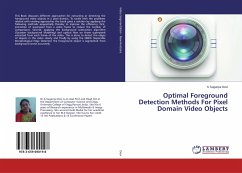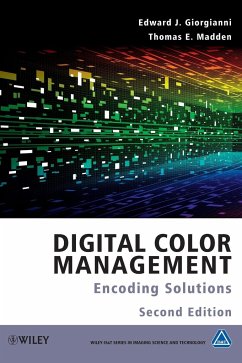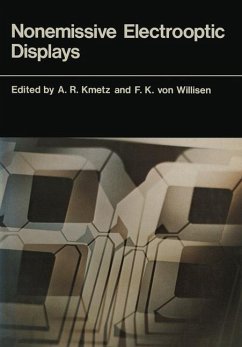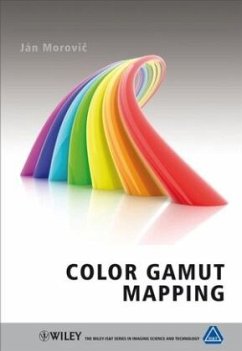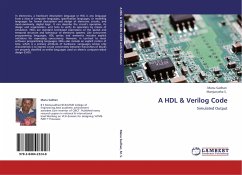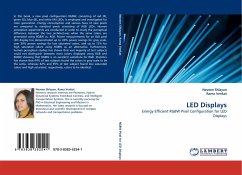
LED Displays
Energy Efficient RGBW Pixel Configuration for LED Displays
Versandkostenfrei!
Versandfertig in 6-10 Tagen
39,99 €
inkl. MwSt.

PAYBACK Punkte
20 °P sammeln!
In this book, a new pixel configuration RGBW, consisting of red (R), green (G), blue (B), and white (W) LEDs, is employed and investigated for color generation. Energy consumption and various hues of new pixels are compared to standard pixels consisting of RGB LEDs. Human perception experiments are conducted in order to study the perceptual difference between the two architectures when the same colors are generated using RGBW vs. RGB. Power measurements for an 8x8 pixel LED display has demonstrated up to 49% power savings for gray scale, over 30% power savings for low saturated colors, and up ...
In this book, a new pixel configuration RGBW, consisting of red (R), green (G), blue (B), and white (W) LEDs, is employed and investigated for color generation. Energy consumption and various hues of new pixels are compared to standard pixels consisting of RGB LEDs. Human perception experiments are conducted in order to study the perceptual difference between the two architectures when the same colors are generated using RGBW vs. RGB. Power measurements for an 8x8 pixel LED display has demonstrated up to 49% power savings for gray scale, over 30% power savings for low saturated colors, and up to 12% for high saturated colors using RGBW as an alternative. Furthermore, human perception studies has shown that vast majority of test subjects could not distinguish between most colors displayed using RGB and RGBW showing that RGBW is an excellent substitute for RGB. Statistics has shown that 44% of test subjects found the colors in gray scale to be the same, whereas 82% and 95% of test subject found low saturated colors and high saturated, respectively, colors to be identical.



